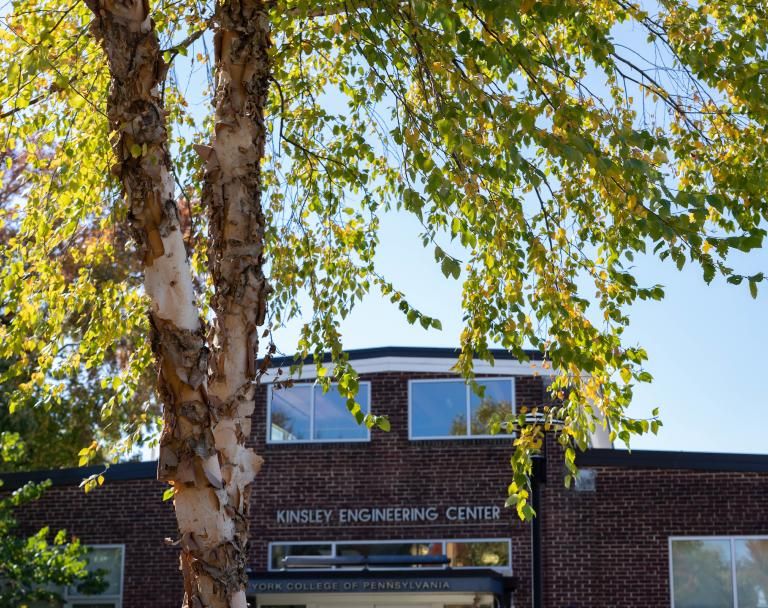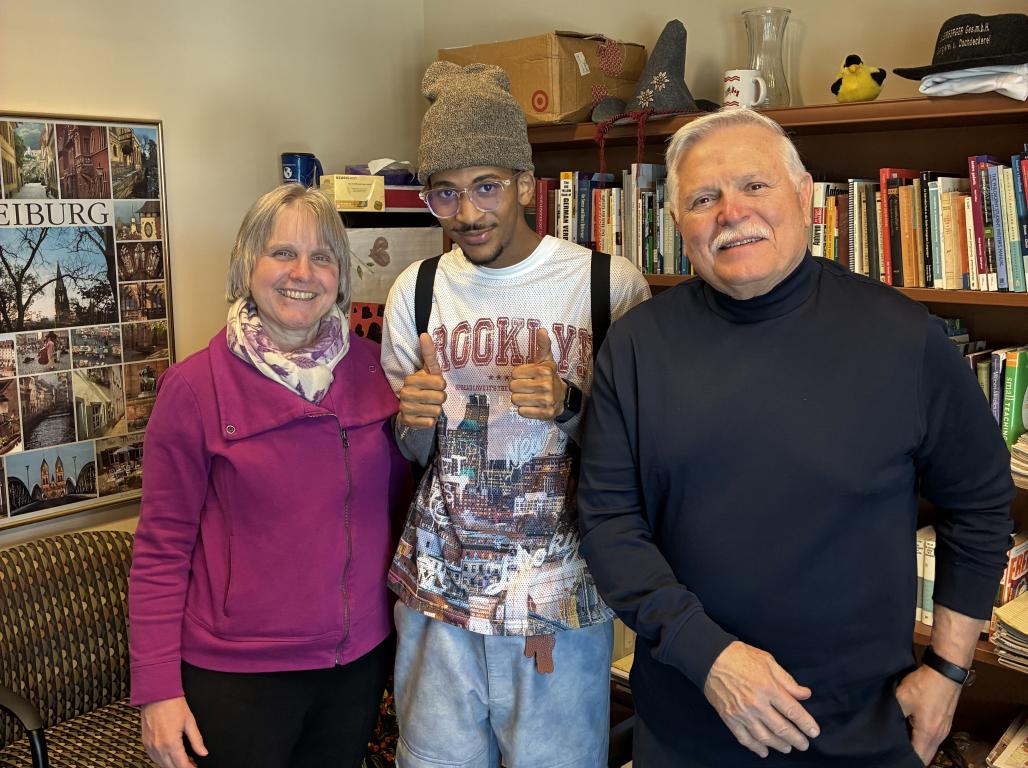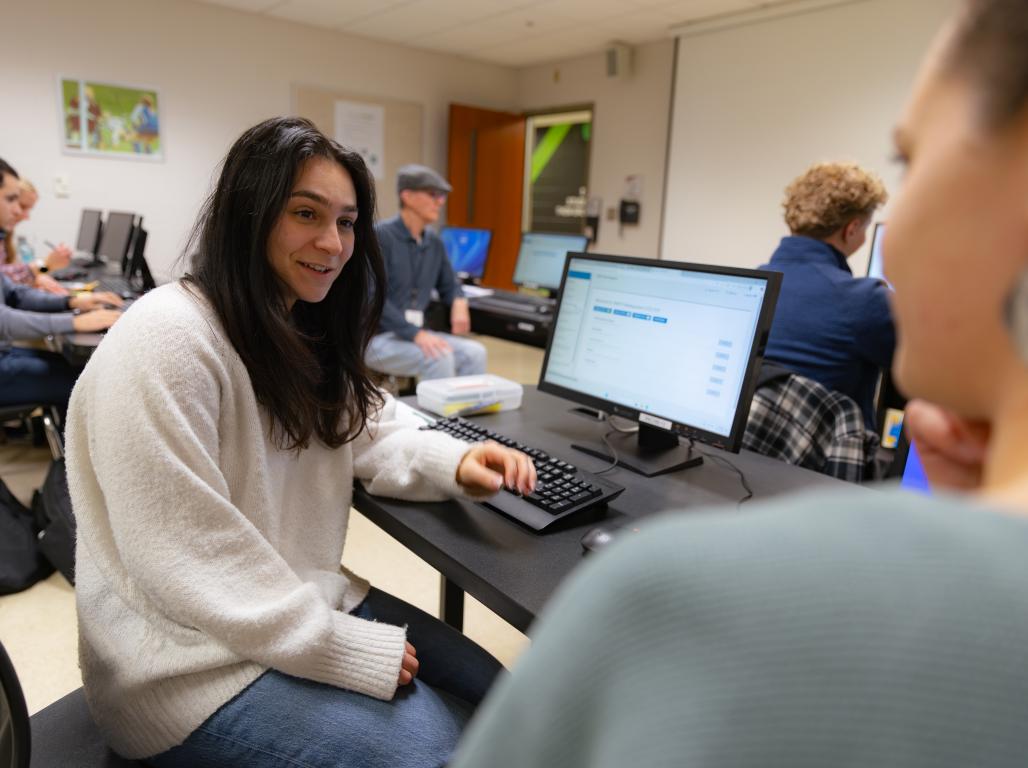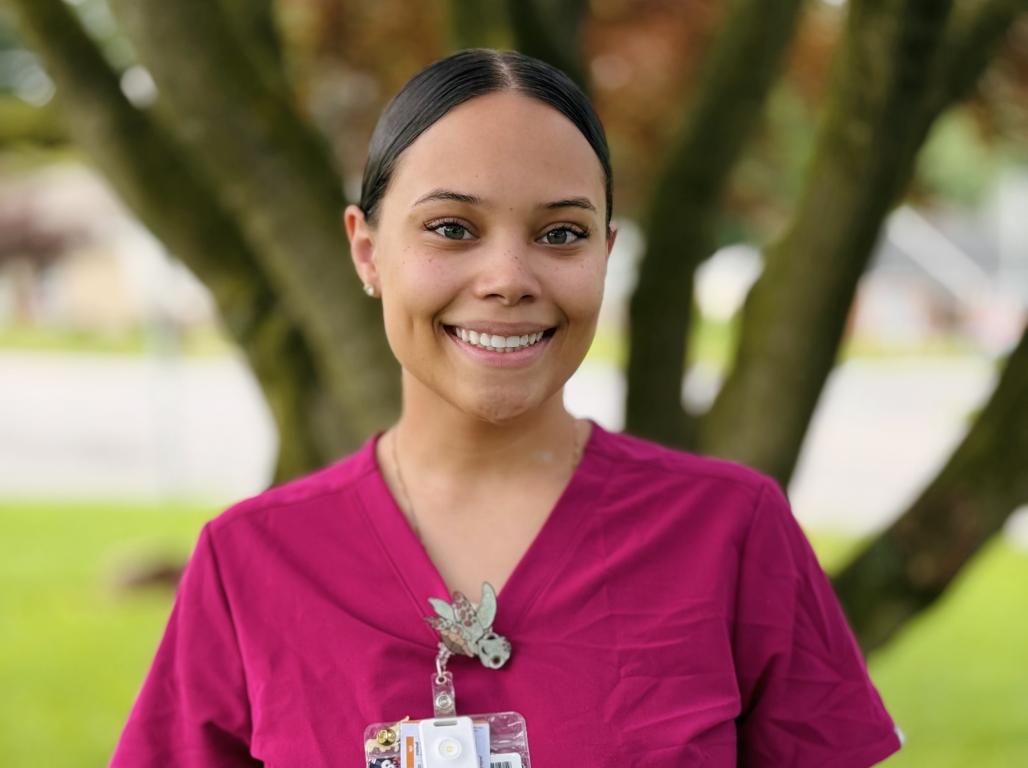Michael Lorenzen ‘23 came to York College dreaming about racing. He pictured himself not sitting behind the wheel of a fast car, hands clenched on the steering wheel, bracing against the g-forces, but behind the scenes–or rather, under the hood–working as an engineer. One could be forgiven then for wondering why he spent his last two semesters at YCP designing and building an automated conveyor belt system meant for sorting packages.
Lorenzen’s prototype, which uses a barcode scanner and programmable logic controllers (PLCs) to read and then sort packages, is similar to larger-scale models seen in warehouses and sorting centers around the world. It was Lorenzen’s capstone project, the final project Engineering majors complete before graduating that requires them to apply the knowledge and skills they picked up during their academic careers to complex, real-world problems.
Lorenzen’s road to the capstone project was a winding one. He began his academic career as a Mechanical Engineering student, drawn to York College in part because of its size. Says Lorenzen, “I was looking for hands-on experience and small classroom size.” A Windsor, PA, native, he was also attracted to a specific part of the Engineering curriculum called the Engineering Cooperative Program, in which third-year students alternate between semesters of academic work and semesters of real-world, hands-on experience in the industry.
Lorenzen’s first co-op was with Multi-Dimensional Integration (MDI), an automation service in Shrewsbury, PA. There, Lorenzen found his niche, and he returned to school the next semester with ideas forming in his head about a possible capstone project, one that embraced both electrical and mechanical engineering.
“He was doing automation [at the co-op],” says Dr. Scott Kiefer, Professor of Civil and Mechanical Engineering and one of Lorenzen’s capstone supervisors. “[Automation] is very electrical but also has the physical and mechanical parts.” According to Kiefer, the experience with automation convinced Lorenzen that a degree in Mechanical Engineering would not be sufficient if his goal was to pursue a career in automation. He needed the electrical side, too.
There was only one problem; YCP does not offer a major in Electromechanical Engineering. So, Lorenzen decided, along with Dr. Kiefer and Professor of Electrical and Computer Engineering and Computer Science, Dr. Kala Meah, to create his own major. “It was the first time in my 16 years here [at YCP] that a student designed his own major,” says Dr. Meah, who also supervised Lorenzen on his project. Adds Dr. Kiefer, “It was not normal, [he was] the only student I’ve ever had that did it.”
Students from different majors often come together to work on a capstone project–like when Electrical and Mechanical Engineering students came together with Computer Science students to build a control system for a radio telescope that is to be put to use at John C. Rudy Park in York–but a student carving out their own path and working alone to complete a project is not a regular occurrence. Lorenzen graduated in August 2023 as the College’s first and only Electromechanical Engineering graduate.
Forging his own path seemed to suit Lorenzen, who has a knack for working through problems on his own. Dr. Meah recalls a problem Lorenzen ran into as he was finishing his project over the summer. “He bought a scanner that did not directly talk to the PLCs, so I asked him to buy another one,” he says. Lorenzen’s response: “I bought this one. I’ll make it work.”
And he did make it work. Lorenzen designed his own interface circuit to function between the PLC and the barcode on the packages and was able to present a working prototype.
This required knowledge not covered in the curriculum at YCP. “We don’t cover PLCs very heavily,” says Dr. Kiefer, “but he was very motivated and saw this as an opportunity to learn more. He really was tailoring his own degree.”
For both of his supervisors, Lorenzen is the perfect example of how York College is uniquely positioned to prepare students for life after graduation. “[YCP] was the perfect school for him,” says Dr. Kiefer. “[Michael] is not going to go to a big state school and be able to do this. He was the perfect student in the perfect place. He was just a great success,” adds Dr. Meah. “[Michael’s] dedication and his hard work all came together in a beautiful way. When a student does very good work, we try to publish it.” Both Drs. Meah and Kiefer hope to make plans to meet with Lorenzen this fall to discuss submitting his work for publication.
“My journey was rocky,” says Lorenzen, “but I think at the end of the day, every engineer questions whether they’re going to make it through or not. I can finally say that I made it through."
MDI offered Lorenzen a full-time position after his first co-op, before he had even begun shaping his unique major in Electromechanical Engineering. He’s there now full-time. “Ten years from now, I plan to stay with the company,” says Lorenzen.





